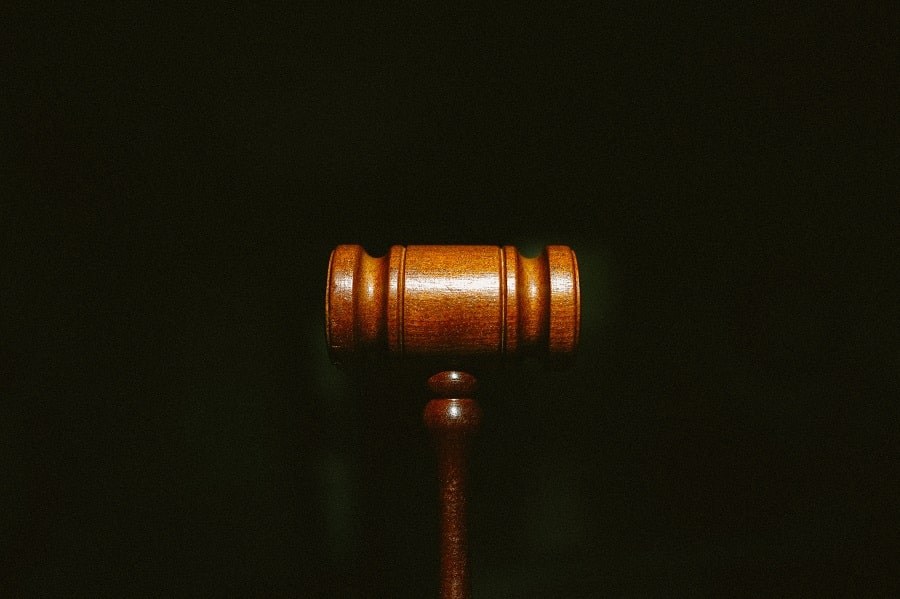California Penal Code 107 (PC 107) is a significant law that addresses the offenses related to escaping from custody and aiding others in such escapes. Understanding this code is important for anyone involved in the criminal justice system, as it outlines the legal consequences of these actions. This blog will explore the key elements of Penal Code 107, the penalties for violations, the legal defenses available, and the overall impact of this law.
What is the Penal Code 107 in California?
California Penal Code 107 specifically deals with the offenses of escape [1]and aiding in escape from correctional facilities. The law states that any individual who is charged with or convicted of a felony and escapes or attempts to escape from a public training school, reformatory, or county hospital is guilty of a felony. Additionally, it criminalizes any acts of aiding or assisting another person in escaping from these institutions.
The intent behind PC 107 is to maintain order and security within correctional facilities, ensuring that individuals serve their sentences as mandated by the law. The implications of this code are serious, as it affects not only the individuals involved but also the integrity of the correctional system.
Key Elements of Penal Code 107
To fully understand Penal Code 107, it is essential to grasp its key components:
- Definition of Escape: Under PC 107, escape is defined as leaving a facility without authorization. This includes both successful escapes and attempts to escape.
- Applicable Institutions: The law applies specifically to public training schools, reformatories, and county hospitals. Individuals in these facilities are subject to the provisions of PC 107.
- Felony Charges: Individuals charged under this code face felony charges [2], which carry serious legal implications. A conviction under PC 107 can lead to significant penalties, including imprisonment in state prison and fines. The severity of the punishment reflects the state’s commitment to preventing escapes and ensuring that individuals serve their sentences as mandated by law.
- Aiding in Escape: The law also criminalizes assisting another person in escaping from custody. This includes providing physical support, planning the escape, or helping the individual evade law enforcement after the escape.
- Intent: A critical element in establishing guilt under PC 107 is the prosecution’s ability to prove that the individual intended to escape or assist in the escape. This intent must be clearly demonstrated, as it is a fundamental aspect of the legal framework surrounding this code.
What are the Penalties for Violating Penal Code 107?
Violating Penal Code 107 can result in severe penalties. Individuals found guilty of escaping or attempting to escape face:
Imprisonment:
Individuals found guilty of escaping or attempting to escape from a public training school, reformatory, or county hospital face imprisonment. The specific punishment is typically imprisonment in state prison, and the length of the sentence can vary significantly based on several factors:
- Circumstances of the Escape: The nature of the escape attempt, whether it was premeditated or spontaneous, can influence sentencing. For example, a well-planned escape may result in harsher penalties than an impulsive decision to leave.
- Prior Criminal History: Individuals with previous felony convictions may face longer sentences. California law often imposes stricter penalties for repeat offenders, reflecting the belief that those who have previously violated the law are more likely to do so again.
- Judicial Discretion: Judges have discretion in sentencing, meaning that two individuals convicted under the same circumstances may receive different sentences based on the judge’s evaluation of the case.
Fines:
In addition to imprisonment, individuals convicted under PC 107 may also face substantial fines. The law specifies that fines can be as high as $10,000. These fines can exacerbate the financial situation of the convicted individual, especially when combined with the costs associated with legal representation and the potential loss of income due to imprisonment.
- Purpose of Fines: The imposition of fines serves as a deterrent, discouraging individuals from attempting to escape or aiding others in doing so. The financial burden of a fine can also serve to emphasize the seriousness of the offense.
Combination of Penalties:
Courts may impose both imprisonment and fines, depending on the severity of the offense and the individual’s criminal history. This means that a person could face a lengthy prison sentence alongside a significant financial penalty. For example, an individual convicted of a serious escape attempt may receive a five-year prison sentence and a $10,000 fine.
- Impact on Rehabilitation: The combination of imprisonment and fines can severely impact an individual’s ability to reintegrate into society after serving their sentence. The financial strain of fines, coupled with the stigma of a felony conviction, can hinder employment opportunities and access to housing.
These penalties for PC 107 violations are designed to deter individuals from attempting to escape and to uphold the integrity of the correctional system.
Legal Defenses Against Charges of Escaping or Aiding an Escape
When facing charges under Penal Code 107, individuals may have several legal defenses available:
- Lack of Intent: If the defendant can demonstrate that they did not intend to escape or assist in an escape, this can be a strong defense. For example, if the escape was accidental or due to a misunderstanding of the rules, the charges may be reduced or dismissed.
- Unlawful Detention: If the individual was unlawfully detained or held in violation of their rights, this could negate the charges. A defense attorney may argue that the individual was not legally obligated to remain in custody.
- Mental State: If the defendant was not in a sound mental state at the time of the escape, this could also serve as a defense. Mental health issues can impact an individual’s ability to make rational decisions.
- Procedural Errors: Any significant errors in the legal process leading to the charges can be grounds for dismissal [3]. This includes issues such as improper arrest procedures or violations of the defendant’s rights.
The Legal Process for Addressing Penal Code 107 Violations
The legal process for violations of Penal Code 107 typically involves several stages:
- Arrest: When an individual is suspected of violating PC 107, law enforcement will arrest them.
- Charges Filed: The district attorney will review the case and decide whether to file charges.
- Arraignment: The accused will appear in court to hear the charges and enter a plea.
- Pre-Trial Proceedings: This may include hearings to determine the admissibility of evidence and other legal matters.
- Trial: If the case proceeds to trial, both the prosecution and defense will present their arguments.
- Sentencing: If found guilty, the individual will be sentenced according to the penalties outlined in PC 107.
Navigating this process can be complex, which is why legal representation is often essential.
How Penal Code 107 Can Affect You?
Understanding Penal Code 107 is vital for anyone involved in the criminal justice system in California. A conviction under this code can lead to significant consequences, including:
- Criminal Record: A felony conviction can have lasting effects on an individual’s life, impacting employment opportunities[4], housing, and more.
- Increased Sentencing: Individuals with prior felony convictions may face harsher penalties if convicted under PC 107.
- Impact on Rehabilitation: Escaping from a facility can hinder rehabilitation efforts and lead to additional charges.
Being aware of these potential impacts can help individuals make informed decisions regarding their legal situations.
Seeking Legal Help for Penal Code 107 Charges
If you are facing charges under California Penal Code 107, it is crucial to seek legal assistance immediately. An experienced attorney can provide invaluable guidance and develop a strong defense strategy to protect your rights and freedom.
Why Hire an Attorney?
- Navigating the Legal Process: A knowledgeable lawyer will ensure you understand your rights and the implications of each decision, guiding you through every step of the process.
- Developing a Strong Defense: Your attorney will assess the details of your case and craft a tailored defense strategy, challenging evidence, establishing a lack of intent, and exploring procedural errors.
- Negotiating Plea Deals: If appropriate, your lawyer can negotiate with the prosecution to secure a more favorable outcome, potentially reducing charges or minimizing penalties.
- Representation in Court: If your case goes to trial, your attorney will provide skilled representation, presenting your defense and making compelling arguments to the judge and jury.
Violations of PC 107 carry severe penalties, including imprisonment and substantial fines. Contact our attorneys at Manshoory Law and they will help you understand the potential consequences and work towards the best possible outcome, protecting your future.
Navigating California Penal Code 107 requires a clear understanding of its provisions, penalties, and the legal process involved. By familiarizing yourself with PC 107, you can better prepare for any legal challenges that may arise. Whether facing charges or seeking to understand your rights, legal assistance is invaluable in ensuring that you are adequately represented and informed throughout the process. Understanding the intricacies of this law can empower individuals to navigate the legal system effectively and protect their rights.
References
- Codes display text. (n.d.). https://leginfo.legislature.ca.gov/faces/codes_displayText.xhtml
- Misdemeanor and felony possible consequences | Manshoory Law. (2022, January 17). Manshoory Law Group, APC. https://manshoorylaw.com/misdemeanor-and-felony-consequences/
- Parker, D. (2024, May 10). What does “Dismissed Without Prejudice” mean? | Manshoory Law. Manshoory Law Group, APC. https://manshoorylaw.com/blog/dismissed-without-prejudice/
- Manshoory, S. (2020, July 21). How to get a job with a criminal record in California? | Manshoory Law. Manshoory Law Group, APC. https://manshoorylaw.com/blog/how-get-job-with-criminal-record-california/


